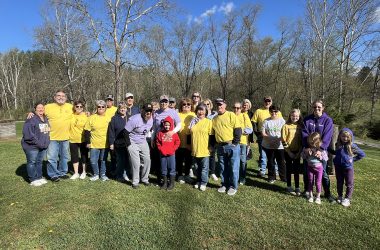Exodus 40:16-21, 29-30, 34, 38
“Thus did Moses: according to all that the Lord commanded him, so did he.” The “all” in all that the Lord commanded is all that God commanded Moses to do in regard to the construction of the tabernacle and its furnishings. There is not one thing relating to the tabernacle and its furnishings which was by the design of man (Moses). It was all of God.
Scripture is not the whim of man or God. All scripture is of God and is given such that we may receive the understandings that He intends. Verse 16 is an advance notice from God. God wants us to know that the tabernacle and its furnishings hold special meaning.
In verse 17, God directs our attention to the date. It is the first-year anniversary of Israel’s departure from Egypt. The tabernacle was raised up on this date because the Lord wants us to associate the tabernacle (a physical symbol of His presence) with Israel’s departure from Egypt (Israel’s freedom from bondage and servitude). The Old Testament is filled with previews of New Testament coming events. All born again Christians have been set free from the power of sin to become the tabernacle (temple) of the indwelling Holy Spirit (the Comforter, Jn. 14:26).
Devout adherents of Judaism will read all that God has written regarding the tabernacle and obtain an understanding that is far short of that which the Holy Spirit makes known to them who have received a new life through Christ Jesus.
in raising up the tabernacle, Moses first assembled the framework which consisted of boards, bars and pillars by fastening them into sockets. Moses then spread the covering upon the framework.
In setting up the interior of the tabernacle, Moses followed God’s every detail. The pieces which Moses placed inside the tabernacle consisted of the Ark of the Covenant (symbolizing God’s covenant with the Israelites); the mercy seat (symbolizing God’s presence among His people); the curtain (symbolizing humanity’s separation from God due to sin); the table that held the shewbread (symbolizing the spiritual nourishment God offers His people); candlestick (lighting the holy place for the priests); altar of incense (burning incense that symbolized acceptable prayers); altar for the burnt offerings (symbolizing how sacrifice restored one’s relationship with God); laver (symbolizing the need for spiritual cleansing).
Once Moses completed the work designated by God, God made His presence visible as a covering cloud above the tent of the congregation and filled the tabernacle His glory (v. 34). God’s continuing presence was evidenced by a cloud by day and by a fire by night.
The tabernacle holds special meaning for Christians because we are the temple (tabernacle) of the Holy Spirit (I Cor. 6:19). God instructed Moses to fashion the boards, bars and pillars from shittim wood. The actual species of tree that Moses used no longer exists and quite likely did not exist in 1611 when the KJV was translated from the original languages. The shittim trees of today are little more than shrubs that cannot be fashioned into boards, bars and pillars of the dimensions specified by God. The Hebrew word which is translated as shittim identifies the wood as that of a thorn tree. The outer branches of all such trees exhibit high thorn density. Note that the supporting boards, bars and pillars of the tabernacle were cut from a tree once capped with a crown of thorns.
The covering of the tabernacle was made of ram and badger skins which were dyed red. Badger, is the translation of the Hebrew word, tachash. The tachash is most likely an antelope with badge-like markings. It most definitely is not a member of the weasel family as tachash is a general term that applies to grass-eating animals with split hooves (Strong’s Exhaustive Concordance). The covering which God specified required the shedding of blood. The proper covering for God’s dwelling requires the sacrifice of an innocent animal.
Born again Christians are made the dwelling place of the Holy Spirit of God by the sacrifice of Him who wore a crown of thorns and gave His blood for us. As the proper dwelling place of God, we are to be His testimony by day and by night. Let us be worthy of our calling.



